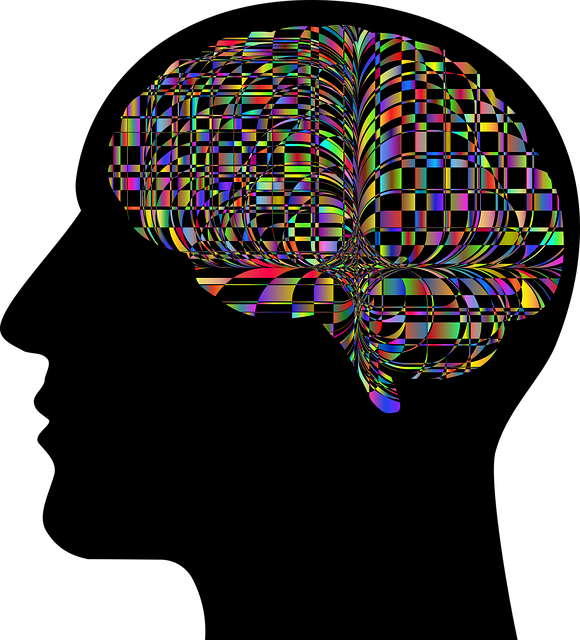Depression, a serious mental health issue exacerbated by life transitions like divorce, can be prevented and managed with early recognition of signs such as persistent sadness, sleep/appetite changes, fatigue, and concentration difficulties. Aurora Divorce Therapy (ADT) offers a holistic approach, emphasizing cultural sensitivity and evidence-based practices to target depression in individuals facing relationship challenges. ADT combines lifestyle changes, positive thinking, conflict resolution, and mindfulness exercises to promote resilience, neural plasticity, and personal growth, while building supportive networks and teaching coping skills to enhance long-term mental health and reduce depression risks.
Depression is a prevalent yet manageable condition. If caught early, prevention strategies can significantly improve outcomes. This article guides you through essential steps to identify depression’s subtle signs and symptoms. We explore the unique role of Aurora Divorce Therapy in fostering resilience and promoting well-being. Additionally, discover lifestyle modifications that nurture mental health and the power of building a supportive network for long-term recovery.
- Recognizing the Signs and Symptoms of Depression
- The Role of Aurora Divorce Therapy in Prevention
- Lifestyle Changes for Boosting Mental Well-being
- Building a Support System for Long-term Resilience
Recognizing the Signs and Symptoms of Depression

Depression is a serious mental health condition that can significantly impact an individual’s daily life and well-being. Recognizing the signs and symptoms early on is crucial in preventing and managing this illness, especially for those going through transitions like divorce. Aurora Divorce Therapy emphasizes the importance of mental health awareness, understanding that divorce can bring about complex emotions that may lead to depression if left unaddressed.
Identifying potential red flags such as persistent sadness, loss of interest in activities once enjoyed, changes in appetite or sleep patterns, fatigue, and difficulty concentrating is essential. Cultural sensitivity in mental healthcare practice is also vital, as individuals from diverse backgrounds may express these symptoms differently. By being aware of these signs, loved ones can encourage those at risk to seek professional help, whether through therapy, support groups, or medication management, thus fostering better communication strategies for improved mental health outcomes.
The Role of Aurora Divorce Therapy in Prevention

Aurora Divorce Therapy plays a pivotal role in depression prevention, especially for individuals navigating life transitions and challenging relationships. This therapeutic approach is designed to help clients explore underlying emotional patterns, gain insights into their behaviors, and develop effective coping mechanisms. By addressing root causes of distress, Aurora Divorce Therapy prevents burnout, a common issue among healthcare providers who often face high-stress situations daily.
Incorporating techniques from Burnout Prevention Strategies for Healthcare Providers, Stress Management Workshops Organization, and Mental Wellness Podcast Series Production, Aurora Divorce Therapy offers a holistic approach to well-being. Through personalized sessions, clients learn valuable tools for stress management, emotional regulation, and building resilience—essential components in maintaining mental wellness. This proactive method not only aids in depression prevention but also fosters overall personal growth and enhanced quality of life.
Lifestyle Changes for Boosting Mental Well-being

In the quest to prevent depression, lifestyle changes play a pivotal role in fostering mental well-being. Engaging in regular physical activity, maintaining a balanced diet, and prioritizing quality sleep are foundational practices that can significantly impact mood regulation. The benefits of these habits extend beyond physical health, as they promote neural plasticity, enhancing the brain’s resilience against depressive episodes. Additionally, incorporating mindfulness exercises, such as meditation or deep breathing, can help individuals develop a stronger connection with their thoughts and emotions, allowing for early identification and management of potential mental health challenges.
Aurora Divorce Therapy emphasizes the integration of positive thinking and conflict resolution techniques within these lifestyle changes. By cultivating a growth mindset and learning effective communication skills, individuals can navigate life’s stressors more adaptively. Moreover, recognizing and addressing cultural sensitivity in mental healthcare practice is essential, ensuring that prevention strategies are inclusive and tailored to diverse populations. This holistic approach empowers individuals to take control of their mental health proactively.
Building a Support System for Long-term Resilience

Building a strong support system is an essential aspect of long-term resilience against depression. This includes fostering meaningful connections with family and friends who can offer emotional backing, understanding, and encouragement during challenging times. At Aurora Divorce Therapy, we emphasize the power of social connection in mitigating stress and promoting mental well-being. By creating a safe space to share experiences and emotions, individuals can develop a sense of belonging and purpose, which are crucial in preventing depressive episodes.
Additionally, learning coping skills through therapy or support groups equips individuals with effective tools to navigate life’s hurdles. These skills not only help manage stress and anxiety but also play a significant role in burnout prevention. By integrating healthy coping mechanisms into daily routines, one can enhance resilience and maintain emotional stability, thereby reducing the risk of depression.
Depression prevention is a multifaceted approach, and incorporating strategies from various sections can significantly enhance mental well-being. Recognizing signs early, seeking professional help like Aurora Divorce Therapy, adopting healthy lifestyle changes, and building a robust support system are key components in preventing and managing depression. By integrating these strategies into daily life, individuals can foster resilience and improve their overall mental health.














